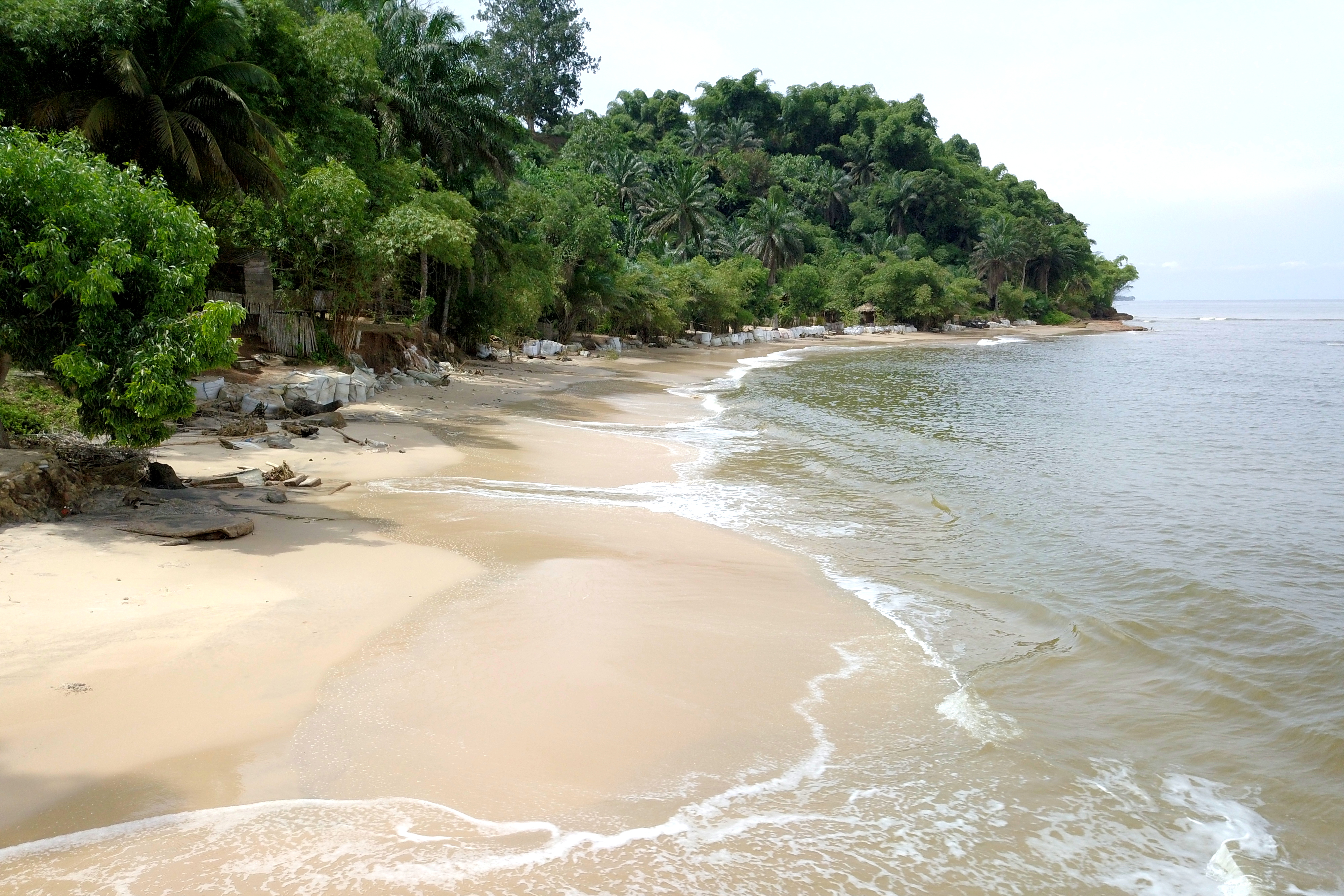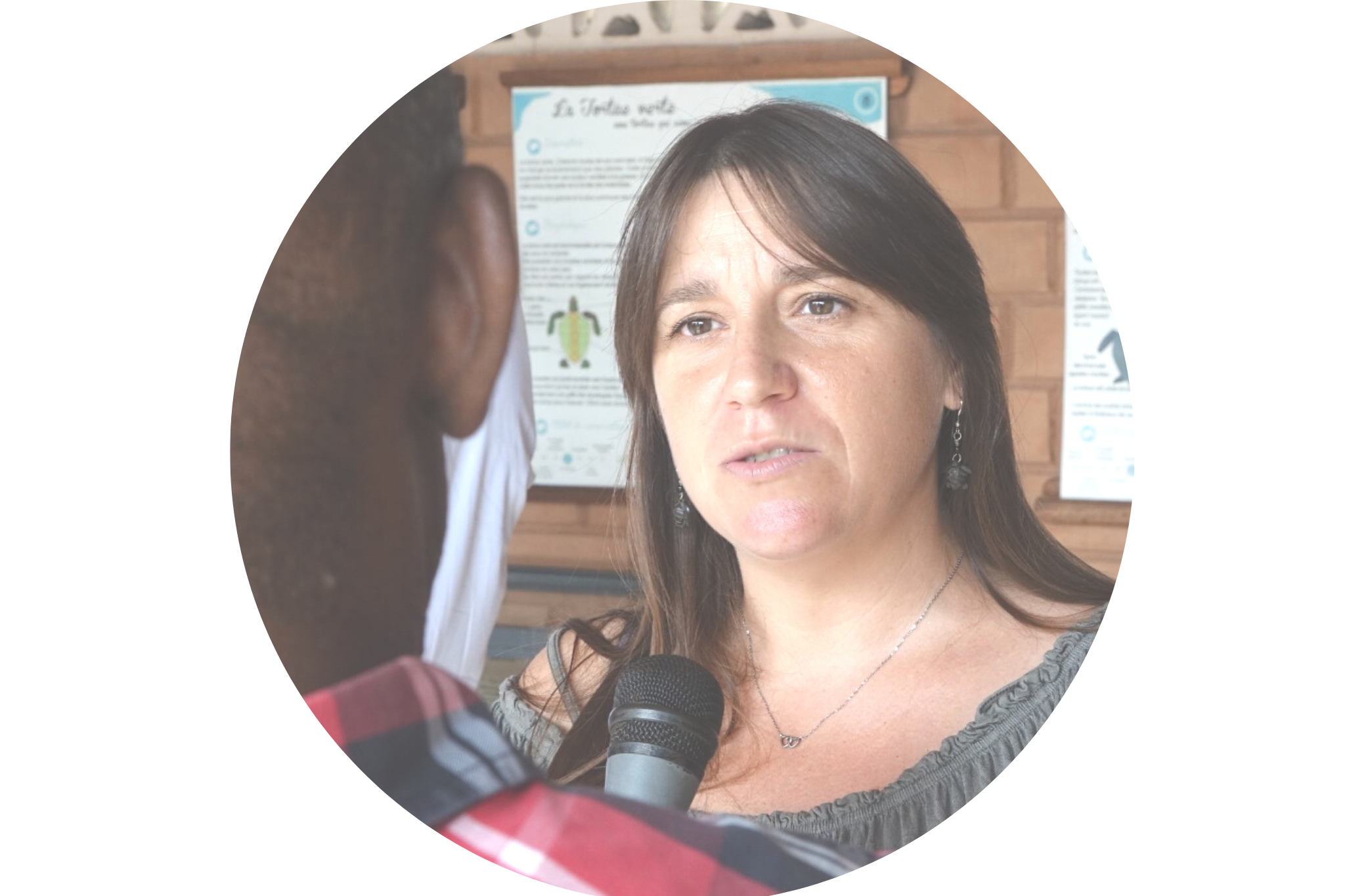
Interview with Nathalie Mianseko Breheret, Director of RENATURA CONGO
Published on 14 March 2023
“Today, Renatura freeds nearly 500 sea turtles each year from artisanal fishing nets.“
1.Nathalie, you are the director of RENATURA Congo, a Congolese CSO created 18 years ago now. Can you remind us a little of RENATURA’s history, tell us a few words about its trajectory and maybe give us some key figures about the organisation’s impact ?
Renatura was born out of a friendship and a shared passion for the environment, but also out of an encounter with an exceptional country, with committed people and fascinating animals.
At the end of 1999, a friend and I came to the Republic of Congo to do voluntary work. We discovered the ecological wealth of the Conkouati-Douli National Park and, at the time, the lack of information among the inhabitants about the fragility of certain animal species and the difficulties in protecting them. We therefore wanted to contribute to the preservation of marine turtles, which were then victims of heavy poaching. This is how the first actions in favour of these threatened species began, using our own funds. The Congo was emerging from a devastating civil war that had lasted several years and the administrations were rebuilding. We had to wait until 2005 to officially create the Renatura Congo association in Pointe-Noire. Since then, the association has continued to develop. In 2006, it received its first funding from the FFEM-PPI to cover campaigns to monitor egg-laying, release accidental catches of marine turtles in artisanal fishing nets and environmental education activities. This valuable support will enable the association to establish its flagship activities and strengthen its credibility with donors.
Today Renatura consists of :
– 15 full-time employees and 45 seasonal workers for the monitoring of egg-laying 5 months a year,
– 140 of Congo’s 170km of beach are protected during the spawning season,
– On average 2000 nests protected each season,
– Nearly 500 sea turtles released each year from artisanal fishing nets,
– 23 villages affected by Renatura’s activities,
– Whale and dolphin monitoring campaigns,
– More than 30,000 children made aware of the environment each year,
– 1 ecocentre housing offices, but also reception areas with an exhibition on marine turtles and eco-construction,
– 1 marine protected area being created.
2. In line with the first question, can you give us two key moments in the history of RENATURA? Strong moments in your trajectory, or anecdotes that seem to you to be good illustrations of what is the life of a civil society actor in Central Africa?
There are many highlights in the story of Renatura but if I had to choose only two I would say :
– In 2011, after years of data sharing and lobbying with the relevant authorities, marine turtles are finally classified as a fully protected species at the national level. A great pride for us and a great step forward,
– 2022, the holding of the National Commission for the classification of the future Loango Community Marine Reserve. This is the culmination of several years of advocacy, two years of study, consultation and work in close collaboration with the authorities and stakeholders.
3.What are the prospects for the year 2023 that is starting? Are there any upcoming challenges that you are particularly excited about and if so why?
The year 2023 opens with new challenges for Renatura: the Loango Community Marine Reserve ! This Protected Area is only waiting for the official signature of its decree to be created. We will therefore be following this complex administrative file closely and, at the same time, preparing all the tools needed to make it operational. Renatura wishes to contribute effectively, alongside the Ministry of Forest Economy, to the management of this area dedicated to the preservation of the marine environment.
For the association, this is a new step. The management of an NGO and the development of a territory are two different missions, both of which serve the preservation of the environment, but on very different scales. We must therefore prepare this transition upstream. We have a lot to learn, but we are also fortunate to have several international partners and NGOs ready to support us in this new challenge!
In parallel, since 2022, thanks to the support of the FGEF-IPP, Renatura Congo has been involved in the preservation of cetaceans. This is a new field of intervention that is proving to be very interesting and full of challenges. We are discovering new information about the biology of whales and dolphins, their presence along the coast, but we are also confronted with new limits linked to the physical and logistical constraints of the marine environment. Studying these ambassadors of the oceans remains a unique experience that is fully in line with our values and objectives, and reinforces our role as defenders of the marine and coastal environment.
4. We know how important the quality of relations with technical and financial partners is for civil society actors in the region. As the leader of a Congolese organisation, in view of the lessons learned in recent years, what advice would you give to TFPs reading this interview who have a real desire to contribute to the emergence of civil society actors in Central Africa ?
Civil society is one of the pillars of a country’s sustainable development. It is the link between communities and the state, it relays the needs of some and the decisions of others, it supports policies and popularises them. In short, it is an essential actor! Unfortunately, in developing countries, where precariousness is recurrent, getting involved in environmental issues remains a marginal approach, still poorly understood by families. The model of social success is built around obtaining a well-paid job, if possible in promising fields such as the exploitation of natural resources. The leaders of environmental organisations, and therefore of the defence of the right to a healthy environment for all and for future generations, are therefore people with a strong commitment, who should be supported in their efforts. The FGEF-IPP, with its CSO support programme, has understood this and is accompanying these actors step by step. After nearly 15 years of action, the results are now there to demonstrate the interest and effectiveness of this long-term work. My advice to TFPs is not to be discouraged, changes take time but must emerge above all from within each country, and therefore from their national civil society.